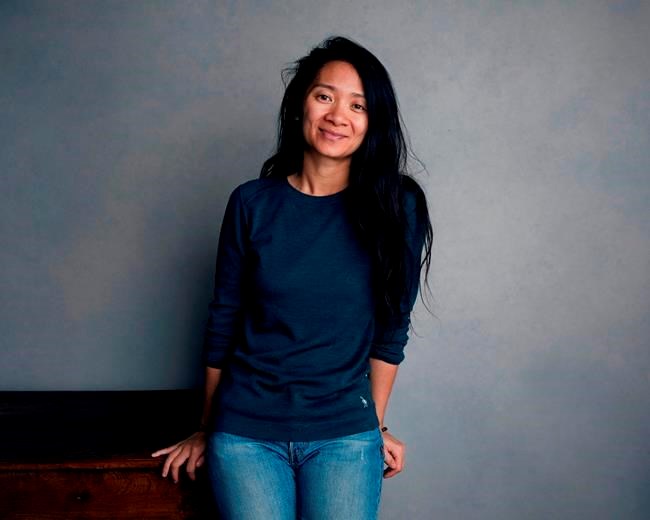A spot in competition at the Venice Film Festival can launch careers and Oscar winners, but in recent years, films directed by women have been mostly excluded from vying for the coveted Golden Lion. Among the 62 films that competed between 2017 and 2019, only four were made by women.
Things have improved at the just-started 77th edition of the festival, where 44% of the films in competition are directed by women.
They include Chloé Zhao’s Great Recession drama “Nomadland,” with Frances McDormand, Mona Fastvold’s period romance “The World to Come,” with Vanessa Kirby and Katherine Waterston, Julia von Heinz’s contemporary political film “And Tomorrow the Entire World” and Susanna Nicchiarelli’s “Miss Marx,” about Karl’s youngest daughter.
Festival director Alberto Barbera noted past “embarrassing percentiles” and said that the films this year were selected “exclusively on the basis of their quality and not as a result of gender protocols.
“This is an unprecedented percentile which we hope augurs well for a future cinema that is free of any sort of prejudice and discrimination,” he said.
The films this year are timely and global. German filmmaker von Heinz started to develop her script for “And Tomorrow the Entire World” 20 years ago, but her story about neo-Nazis and anti-fascists in contemporary Germany has only become more relevant.
“The right-wing movement in Germany became stronger and stronger like everywhere in the Western world,” she said. “2020 seems to be the perfect year for this film to give birth.”
She applied to Venice specifically because of another female-directed film, Margarethe von Trotta’s “Marianne and Julianne,” from 1981, which had a massive influence on her. The film, based on the true stories of sisters Christiane and Gudrun Ensslin, a founder of the Red Faction Army, won the festival’s top award that year.
“It’s sometimes very hard to make a political film which keeps its meaning over the years and is not just for the time it’s made,” she said. “Venice has this tradition to show these kinds of films so we applied. And I was very happy that (Barbera) even compared our films at the press conference.”
Applying was a no-brainer for Norwegian director Fastvold, who had a long history with the Venice Film Festival with “Vox Lux” and “Childhood of a Leader," films she co-wrote with her partner Brady Corbet. But this is her first time being invited to be part of the competition with one she directed.
Based on a Jim Shepard story, Fastvold’s “The World to Come” is about two women, married to farmers, who fall in love in the 1850s New York.
“It’s about this very intense intellectual and emotional and physical connection between two women (played by Kirby and Waterston),” Fastvold said. “People would ask me, why do you want to tell the story about normal women falling in love with one another. And I said, well, I do think that there should be a place in history for the quiet ones as well. Not just the great icons. Not just the Napoleons.”
Four women have won the Golden Lion in the festival’s history: Sofia Coppola, for “Somewhere” in 2010, Mira Nair, for “Monsoon Wedding” in 2001, Agnes Varda for “Vagabond” in 1985 and von Trotta in 1981.
Von Heinz is particularly happy to be in the company of so many women this year. She worried a little about their track record, but is heartened by the numbers, the Cate Blanchett-led jury and Tilda Swinton’s lifetime achievement
“I feel very comfortable and proud to be in that environment,” von Heinz said.
Fastvold said that it’s always an
“There are some really, very smart programmers in Venice who work very hard and see so many films and this year has been a very challenging year, but I think they’ve done a very great job,” Fastvold said. “You have to seek out the smaller films. That’s the key, right?”
Other female-directed films in the main competition are Nicole Garcia's French thriller “Lovers,” with Stacy Martin, Italian filmmaker Emma Dante's “The Macaluso Sisters,” Malgorzata Szumowska's Polish drama “Never Gonna Snow Again,” and Jasmila Zbanic's "Quo Vadis, Aida?” from Bosnia.
The importance of the platform of a major festival like Venice cannot be understated, according to Women and Hollywood founder and publisher Melissa Silverstein.
“It’s become clearer as time has moved on that festivals have an even more important role to play in the industry as curators of our culture,” Silverstein said. “It signals to buyers and agents and producers that this is a person who has made something that is worthy of global attention.”
But, she’s also waiting to make sure this will be a consistent activity.
“To do great once, that’s fine, but that’s just a fluke,” she added. “It needs to be a trend.”
___
Follow AP Film Writer Lindsey Bahr on Twitter: www.twitter.com/ldbahr
Lindsey Bahr, The Associated Press



